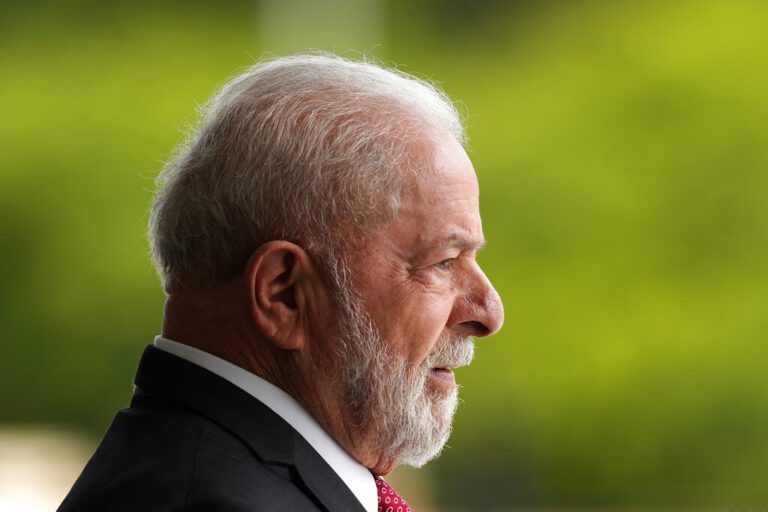Trump Administration Imposes Sanctions and Tariffs on Brazil
In a significant geopolitical move, the Trump administration has announced new sanctions and tariffs against Brazil, driven by the prosecution of former right-wing president Jair Bolsonaro. This decision follows Bolsonaro’s ongoing trial for allegedly conspiring to assassinate his left-wing successor, President Lula da Silva.
Key Points of the Sanctions
-
New Tariff Implementation: On Wednesday, President Trump signed an executive order imposing a 50% import tax on a range of Brazilian goods. This action marks the declaration of a national emergency under the International Emergency Economic Powers Act of 1977.
- Allegations Against Brazil: The administration accuses Brazil of engaging in a “politically motivated persecution” against Bolsonaro and his supporters, alleging activities such as intimidation, harassment, and human rights abuses.
The Legal Battle
Jair Bolsonaro, who narrowly lost the election to Lula da Silva in 2022, is currently facing accusations of plotting a coup. He has also been barred from holding office due to attempts to subvert the electoral process.
“They’re treating President Bolsonaro very unfairly. He’s a good man,” stated Trump, voicing his support for the former president in a letter to Lula dan Silva, warning of potential tariffs if the legal proceedings against Bolsonaro did not cease.
Brazil’s Response
In contrast, President Lula da Silva has reaffirmed Brazil’s commitment to its judicial independence, stating:
“If he wants to have a political fight, then let’s treat it as a political fight… But you can’t mix everything together.”
Exemptions and Details of the Tariff
While the new tariffs are extensive, they include exemptions for certain products:
- Exempt Goods:
- Precious metals
- Some aircraft and parts
- Wood pulp
- Various energy products
However, coffee—a significant export—will not be spared. Brazil supplies approximately 30% of the coffee consumed in the United States.
Sanctions Against Judicial Figures
In a related action, the Department of the Treasury has imposed sanctions on Justice Alexandre de Moraes, a Brazilian Supreme Court justice being accused of censorship and political persecution.
- Remarks from Secretary Bessent:
“Alexandre de Moraes has taken it upon himself to be judge and jury in an unlawful witch hunt… He is responsible for an oppressive campaign of censorship.”
Implications for Justice de Moraes
The sanctions entail:
- Asset Seizure: Any assets that Justice de Moraes holds in the United States may be seized.
- Visa Restrictions: Following an earlier announcement by Secretary Rubio, visas for de Moraes, his allies, and their families will be revoked.
Furthermore, de Moraes is known for ordering the shutdown of the social media platform X in Brazil over claims regarding hate speech spread by its policies.
Conclusion
The escalation of trade tensions between the United States and Brazil highlights the complex interplay of legal grievances and political alliances in today’s global landscape. The sanctions and tariffs serve as a formidable reminder of how international relations can shift rapidly, influenced by national narratives and individual actions.
For more information about President Trump’s executive order and the implications for international trade, visit The White House.
Related Links
- Jair Bolsonaro’s Presidency
- International Emergency Economic Powers Act
- Lula da Silva’s Administration
By closely monitoring these developments, stakeholders can better understand the broader implications for Brazil’s economy and its international relationships.


